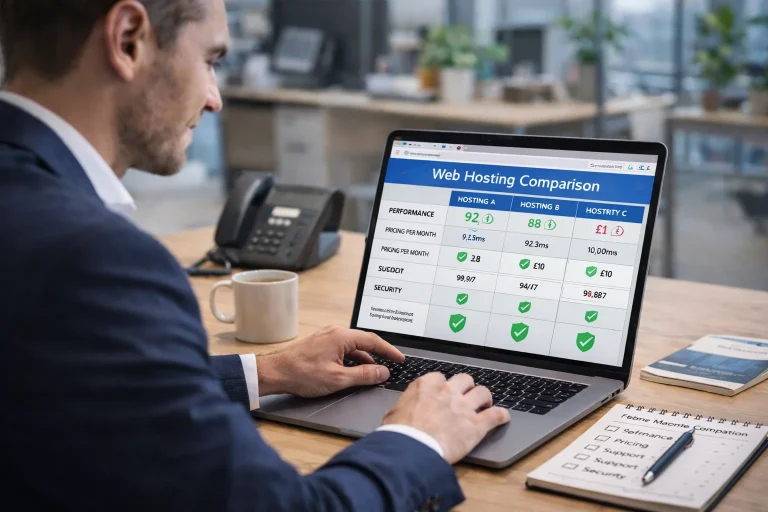Starting a business can feel overwhelming when you do not have a clear idea in mind. You might wonder where to begin, what to do, and whether success is even possible without a perfect plan. Many people have the ambition but struggle with the initial steps simply because they feel they lack creativity or inspiration.
The truth is that you do not need a groundbreaking idea to get started. Instead, you need a process that helps uncover opportunities around you. In this blog, we will explore easy steps you can follow to move from feeling stuck to launching a successful venture.
Each step is designed to give you practical insights, inspire action, and help you take that first leap confidently. Let us explore how you can turn a blank slate into a flourishing business opportunity.
Why Do You Feel Stuck Without a Business Idea?

Many aspiring entrepreneurs feel paralysed by the belief that they must have a groundbreaking idea before they can begin. This misconception can lead to frustration and self-doubt, making it seem as though starting a business is out of reach. In reality, feeling stuck often stems from fear of failure or the pressure to be perfect from the outset.
It is common to think that every successful entrepreneur had a brilliant concept from day one, but most built their businesses through exploration and adaptation.
By understanding that you do not need a fully formed idea to get started, you can free yourself from unnecessary stress. The key is to take small actions that gradually shape your business concept.
Starting with self-reflection, market research, and small experiments can lead you towards discovering what works best for you. Remember, the first step is not about perfection but about progress.
How Can You Identify Your Strengths and Interests?
Your business journey becomes smoother when it is built around your natural strengths and passions. Recognising what you are good at not only boosts confidence but also helps you create value for others.
Reflect on these guiding questions:
- What activities make you lose track of time?
- What do people often seek your help with?
- What subjects or hobbies excite you most?
Create a personal inventory:
- Skills: Technical, creative, interpersonal
- Knowledge: Industry expertise, personal experiences
- Traits: Patience, problem-solving, leadership
Once you list these, look for patterns where your strengths meet real-world needs. Do not dismiss talents you take for granted, such as organising, listening, or creating.
These skills can easily translate into viable business ideas. Matching your strengths with market demands ensures that you stay motivated and capable as you build your venture.
What Are Some Current Trends That Could Inspire You?
Understanding market trends helps you position yourself where demand is growing. Trends signal what people are looking for, offering a roadmap for where your business could fit in.
Here are some key trends in 2025:
- Eco-friendly products: Sustainable packaging, green alternatives, carbon-neutral services
- Online education: E-learning platforms, tutoring services, skill coaching
- Health and wellness: Mental health apps, personalised fitness, nutritional consultancy
- Remote work tools: Virtual collaboration software, home office products
- AI and automation: Chatbots, content generation tools, smart home integration
Following these trends allows you to enter markets that are expanding rapidly. You can adapt your skills to match one of these growing needs, helping you find a clear direction even without a predefined business idea.
Best Business Ideas You Can Start Without a Clear Idea

If you are eager to start but unsure where to focus, here are business ideas you can begin with minimal risk and maximum flexibility:
| Business Idea | What You Do | Key Advantage |
| Freelance Content Writing | Write blogs, web content, and social media posts | No degree needed, flexible workload |
| Virtual Assistant Services | Manage emails, calendars, and admin tasks remotely | High demand among small businesses |
| Handmade Crafts Seller | Create and sell jewellery, candles, and decor items online | Showcase creativity, home-based setup |
| Social Media Management | Grow and manage brand profiles on platforms like Instagram and TikTok | Creative work with growing demand |
| Dropshipping Store Owner | Sell products online without holding stock | Minimal upfront investment |
| Online Tutoring | Teach subjects or skills via Zoom or similar platforms | Flexible hours, rising online education |
| Personal Fitness Coach | Provide fitness coaching and workout plans online or offline | Growing health-conscious market |
| Event Planning Services | Organise birthdays, weddings, and corporate events | In-demand service for special occasions |
| Digital Product Creation | Sell ebooks, courses, templates, and digital downloads | Scalable passive income opportunities |
| Pet Sitting and Dog Walking | Care for pets locally with walking or home-sitting services | Low startup cost, high pet owner demand |
Starting small with one of these ideas allows you to learn entrepreneurial skills, gauge demand, and gradually expand into larger business opportunities.
How Can Solving Everyday Problems Lead to Business Ideas?
Some of the most successful businesses began simply by solving an everyday problem. By observing challenges in daily life, you can uncover ideas that have real-world demand. Think about frustrations you experience personally or notice in others and consider how you could offer a better solution.
For instance, the creation of Deliveroo came from the frustration of limited food delivery options. Similarly, What3Words developed a system to solve location accuracy issues. Solving a problem does not mean inventing a complicated solution.
Often, the best business ideas come from simplifying processes, improving customer experiences, or making life easier. Start paying closer attention to the small annoyances around you. These small inconveniences could be the seed for a profitable business if approached creatively and thoughtfully.
Are There Low-Investment Business Ideas You Can Start Today?
Starting small financially allows you to build and test your business ideas without significant risks. Many business models require minimal upfront investment but offer great potential for growth.
Some popular low-investment ideas include:
- Freelance Graphic Design: Using free or affordable software, you can offer logos, branding, or social media designs.
- Blogging and Affiliate Marketing: Start a blog on a niche topic and earn through affiliate partnerships.
- Digital Marketing Services: Help local businesses with basic SEO, ad management, and online visibility.
These businesses rely more on skills and creativity than heavy financial investment. You can operate them from home, upgrade your tools as you grow, and reinvest profits into expanding your services. Choosing a low-investment path reduces your stress and gives you the freedom to experiment safely.
How Can Learning From Existing Businesses Spark Your Own Idea?

Observing what existing businesses are doing can provide invaluable inspiration. Analysing their successes and shortcomings helps you create a unique offering that fills market gaps.
| What to Study | What to Learn | How It Helps |
| Customer feedback | Common complaints or unmet needs | Find gaps to address |
| Branding and marketing | How businesses connect with audiences | Learn communication strategies |
| Product improvements | Features customers wish they had | Innovate and differentiate |
Researching businesses similar to what you are considering allows you to refine your own ideas. You might discover better ways to deliver services, offer superior customer experiences, or introduce new features that set you apart from the competition.
What Online and Home-Based Business Models Could You Explore?
Online and home-based businesses offer flexibility, lower costs, and scalability. These models are especially suitable when starting without a strong initial idea.
Here is a table of some online and home-based business models:
| Business Model | Description | Benefits |
| Print on Demand | Sell custom merchandise with no inventory | Easy to start and automate |
| Virtual Coaching | Offer skills or mindset coaching remotely | High demand in many industries |
| Subscription Boxes | Curate and deliver themed boxes monthly | Encourages customer loyalty |
| Freelance Consulting | Advise businesses in your area of expertise | Build authority and recurring income |
These models allow you to pivot easily if needed and expand at your own pace. They offer great entry points for anyone looking to begin without high startup costs or a fixed office space.
Why Is It Important to Start Small and Test Your Ideas?
Launching big without testing often leads to avoidable mistakes and wasted resources. Starting small enables you to validate your idea before investing heavily.
A minimal launch could involve selling your first products through marketplaces, offering trial services to a few clients, or running a small ad campaign to gauge interest.
This approach gives you the chance to adjust your strategy based on real feedback. It saves money, reduces risk, and builds your confidence gradually. Customers appreciate businesses that evolve based on their needs.
Testing also helps you learn valuable lessons about marketing, customer service, and operations without the pressure of large-scale failure.
How Can You Continuously Learn and Develop New Skills?
Continuous learning keeps you competitive and opens new possibilities you might not have considered initially. Entrepreneurs need to wear many hats, from marketing to finance to product development.
You can upskill by:
- Enrolling in affordable online courses
- Reading business and marketing books
- Joining local or online entrepreneur communities
Acquiring new skills not only prepares you for different challenges but also increases your ability to innovate. Knowledge fuels confidence, and confident entrepreneurs are more likely to succeed.
Embracing a lifelong learning mindset ensures that you stay ahead of trends and build a business that adapts to changing market conditions.
What Can Side Hustles Teach You About Starting a Business?

Starting with a side hustle allows you to gain valuable experience without the risk of quitting your main job.
Some key lessons from running side hustles include:
- Understanding Customer Needs: You learn firsthand what customers want and expect.
- Learning Time Management: Balancing work and side projects teaches discipline and efficiency.
- Testing Business Models: You can experiment with different offers and find what resonates.
Many successful entrepreneurs started with small side gigs before turning them into full-time businesses. Treat your side hustle seriously, learn from each interaction, and refine your strategy as you go.
Conclusion
Feeling stuck because you think “I want to start a business but have no ideas” is completely normal. By identifying your strengths, exploring current trends, and paying attention to everyday problems, you can uncover exciting opportunities.
Low-investment business models and side hustles give you the flexibility to start small and scale as you gain experience. Learning from existing businesses and constantly improving your skills helps you stay agile in a changing marketplace.
Most importantly, starting a business is about action, not waiting for a perfect idea. Your journey begins with small steps taken today, leading to bigger achievements tomorrow.
FAQs
Can I still start a business if I have no formal business background?
Yes, many successful entrepreneurs began without formal training, learning skills as they built their business.
What should I focus on when choosing my first business idea?
Focus on your strengths, current market trends, and solving real-world problems people face.
Are online businesses better for beginners?
Online businesses are ideal for beginners because they require lower investment and offer greater flexibility.
How long does it take to find the right business idea?
It varies, but staying consistent in exploring, testing, and learning will help you discover your best fit faster.
Should I copy an existing business idea?
Rather than copying, study existing businesses to improve or innovate on what they already offer.
Can side hustles become full-time businesses?
Yes, many side hustles eventually grow into profitable full-time businesses with dedication and smart scaling.
What is the biggest mistake new entrepreneurs make?
Waiting too long for the perfect idea instead of starting small and learning by doing is the most common mistake.








